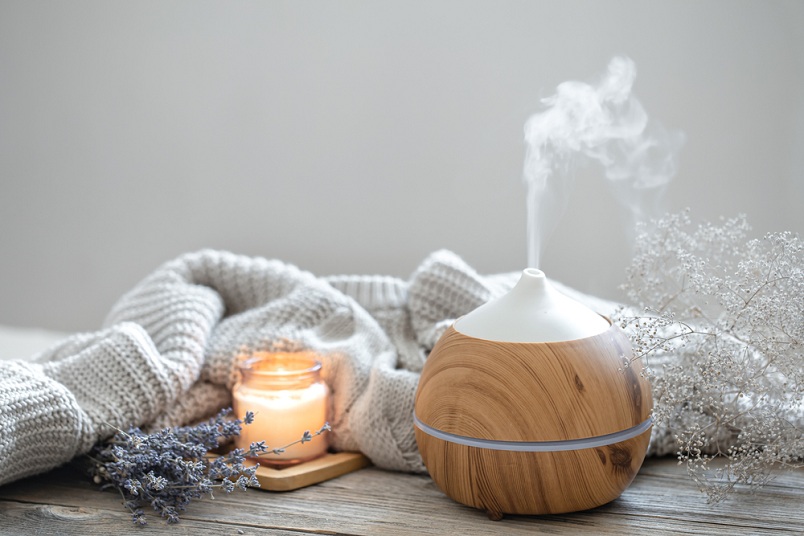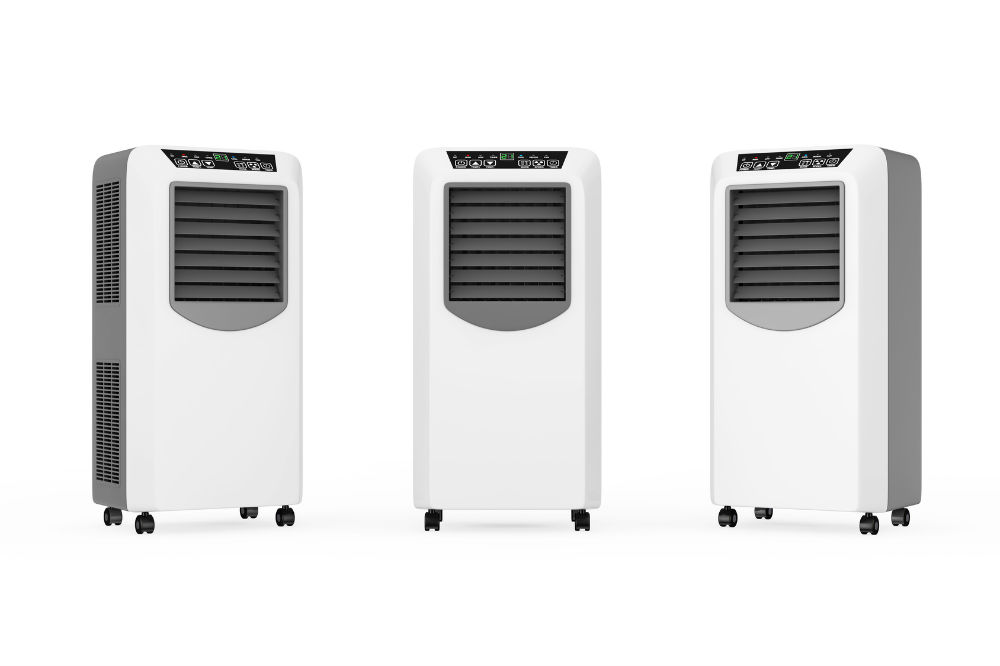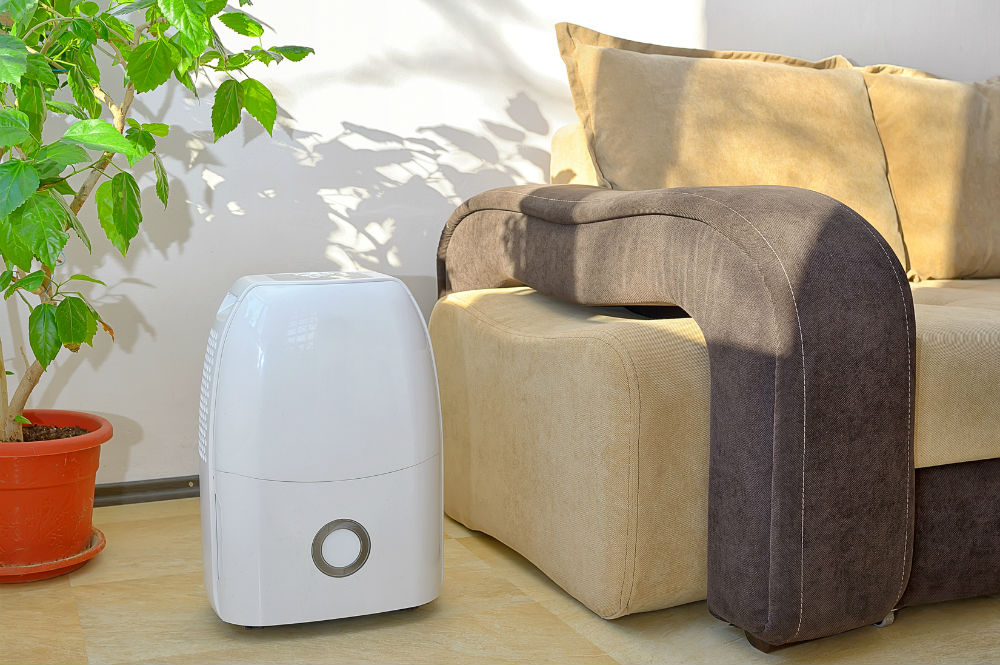Have you noticed that your house’s air is too dry or smells musty or dusty?
It could be that the humidity level in your house isn’t high enough. A lack of humidity in your home can also lead to respiratory issues and skin irritations.
You don’t want these things to happen to your health or your family. A humidifier can help improve the health condition of your air, but it won’t do much to improve the smell.
That’s where essential oil diffusers come in. These inexpensive devices disperse atomized scented oil into your room to improve the ambiance and soothe your stresses.
Buying one of each will certainly provide both benefits. But high-end humidifiers often come with an attachable diffuser unit. So what makes these two different products? Should you consider buying a combination unit?
We clarify this confusion in this article.
What Is a Diffuser?
Diffusers allow essential oils or fragrances to permeate the air in the room.
A diffuser is a small device powered by an electric current that vaporizes essential oils and discharges the oil particles into the air in your room. Most diffusers use a fan to blow air over an evaporator plate to pick up the oil vapor. Some also include a humidifier that vaporizes water before adding oil vapors.
A diffuser is typically used to add scents to the air but can also be used to inject oils that promote good physical and mental health.
Diffusers can be used in any part of your home, including bedrooms and living rooms.
What is the impact of a diffuser on health?
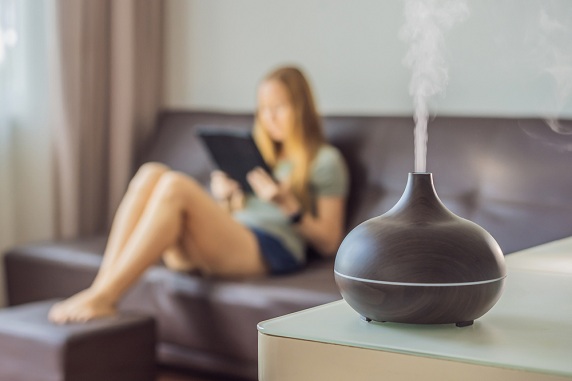
Studies show that a diffuser can reduce some types of bacteria and fungi in the house. A reduction in bacteria means fewer health risks for you and your family.
The cool air expelled by a diffuser may also help eliminate unpleasant smells from the house air.
Special features included in high-end diffusers often improve the functioning of the machines. For example, you can buy diffuser systems with built-in music docks or lighting.
This allows the diffusers to be used for multiple purposes, making them cheaper to buy.
Types Of Diffusers
Today, there are a variety of diffusers on the markets available for consumers:
Evaporative – Cool mist diffusers use an evaporative wick or pad to disperse the oil into the air. Heated units heat the oil to aid in evaporation.
Nebulizer – uses suction & pressure effect to mechanically break up the oil into smaller particles and release them into the air.
Ultrasonic – uses high-frequency sound waves to add energy to the oil in order to evaporate it.
Humidifiers
Properly humidified air can be beneficial for people who suffer from respiratory illnesses. It helps them breathe easier and decreases their skin ailments.
Humidifiers are appliances that contain a water reservoir, a mechanism to convert liquid water into water vapor, and an electric fan to suck dry air in and push humidified air back into the room.
There are several different types of humidifiers, including cool mist, warm mist, and vaporizer units. These differ in the method used to generate water vapor.
In addition, humidifiers range in size from small portable units for one person’s space to single-room humidifiers, swamp coolers that humidify larger spaces, and whole-house humidifiers installed as part of your central AC/heating system.
Humidifier-Diffuser Combination Units
Today, some appliances combine the features of a humidifier and diffuser into one unit.
Many humidifiers also include an optional diffuser attachment, but these should only be used with a cool-mist unit.
Suppose you find a warm mist or vaporizer humidifier with an oil diffuser. In that case, it’s essential to remember that the oils can break the humidifier’s plastic parts and reduce the effectiveness of the essential oils. Such a unit must be designed for both purposes, or it probably won’t last very long.
Do Humidifiers Improve Your Health?
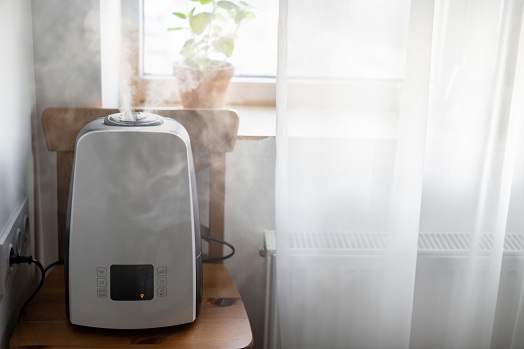
A humidifier maintains the level of humidity in an environment, which can reduce the symptoms of certain respiratory or flu-related illnesses.
It maintains an optimal moisture level in the air so that the skin and membranes can absorb a healthy moisture level.
Moisture levels in your house can help extend the life of your home. Dry wood loses its shape, causing structural aging. Wood that is dry splits and breaks weakens the support in your house’s structure.
Most humidifiers require no special water or ingredients; they can be operated using only tap water. Most humidifiers have built-in filters that remove germs or mites from the water.
Without proper care, a humidifier can become a breeding ground for germs, which can then be released into the air and enter our bodies.
Who wants that?
Models Of Humidifiers
There are many different types of humidifiers, each using another technology to meet your specific needs.
Warm Mist – This humidifier relies on a heating element to evaporate or boil water to create water vapor. Warm mist units can handle the most challenging environments but consume more energy and cause burns if misused.
Cool Mist – This humidifier uses simple evaporation or mechanical pressure to convert liquid water into a cool mist that soothes the skin. It uses less energy, but applications are limited to less-dry conditions.
Whole-House – generally larger than a small humidifier and can be installed directly into your structure’s central air system. A whole-house humidifier pushes moisture into every room simultaneously, ensuring a balanced humidity level throughout the building. Great for protecting wooden floors, wall trim, and furniture from damage during dry seasons.
Ultrasonic – uses ultrasonic vibrations to create a mist. Very energy efficient. Noise levels are usually higher than in other models, so it’s essential to research before buying one.
Benefits of Humidifier
The benefits of having a humidifier in your home include:
- Reduced risk of colds and flu
- Improved Health
- Increased energy efficiency
- Better sleep
- Healthier indoor air quality
- Maintains the comfort of your home
- It helps prevent mold growth
- Improves indoor air quality
- Relieves allergy symptoms
- Increases home value
Benefits of Diffusers
The benefits of having an essential oil diffuser in your home include:
- Soothing aromatherapy
- Natural way to freshen up the air
- Excellent for meditation and relaxation
- No electricity required
- Eliminates smoke odor
- Easy to use
- You don’t need to run a humidifier all day long
Closing Thoughts
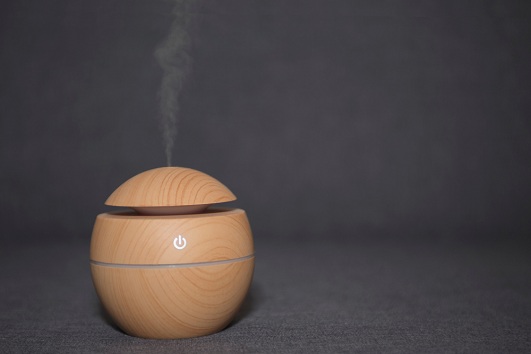
After understanding the differences between a diffuser and a humidifier, you are ready to choose the right kind of product for your house.
On this site, we provide several buying guides to help you select the right product for your specific needs, as follows:
FAQs
Q: How often should I clean my humidifier?
A: Cleaning your humidifier will depend on how dirty it gets over time. If you notice dust buildup around the filter, wipe it off with a damp cloth. Generally speaking, you should clean your humidifier – including any filters and evaporator plates – once a month.
Q: Are humidifiers safe?
A: Yes, most humidifiers are entirely safe to use. However, we recommend keeping warm mist and vaporizer models safely out of the range of small children and pets.
Q: What if you want moisture and fragrance?
A: A diffuser-humidifier combination unit can provide moisture and scent. Do not add essential oils to a humidifier – it will likely clog the system and could present a fire hazard.
Q: Is it possible to install a humidifier without ductwork?
A: Yes, most people purchase separate independent humidifiers for each room in the house. A whole-house unit, on the other hand, will be installed directly into your existing HVAC system and use the existing ductwork.
Q: Will a humidifier work well in a basement?
A: It depends on the size of the humidifier. Smaller ones will work fine, while bigger units may require additional ventilation.
Q: Will a humidifier keep me healthy?
A: In general, sleeping in a properly-humidified room is important to maintain your health, according to The National Institute of Health.
Q: Why does my hair smell after I’ve used a humidifier?
A: Water vapor traps and spreads odor-carrying particles in the air. So the more humidity you add, the more chance of odors in the air. To address this issue, you’ll need to address the source of the odor.
Q: How do I know if I need a humidifier?
A: If you’re living in a dry climate, you may wake up feeling tired and dehydrated. Dry eyes in the morning, flaky skin, and raspy coughs are other signs your room’s air may be too dry. A humidifier will resolve many of these issues.
I’m a degreed ME (mechanical engineer) who is passionate about machines of all kinds. I created MachineWonders.com as a way to connect with others who love machines like me – or need help choosing one for their needs, application, or situation.

